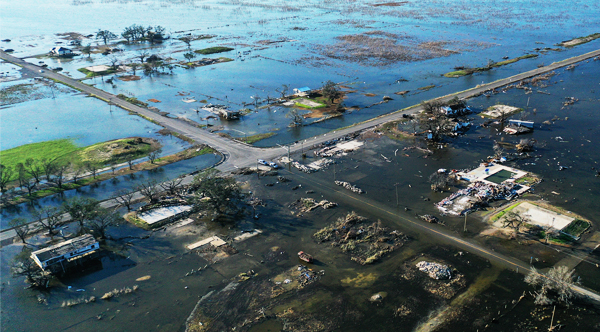
In 2022, damage from natural disasters caused global economic losses of $313 billion, according to this Aon article in Reuters. The number of natural weather disasters in the United States that resulted in damage of at least $1 billion in 2022 totaled 15 through October -- this does not include damage from November and December storms. While the total number of disasters may be slightly less than in recent years, the impact of Hurricane Ian and Nicole is projected to break into the top three most costly years in American history. These two storms in rapid succession, combined with labor shortages put a massive strain on catastrophe response and stretched resources for P&C insurers across the country.
To mitigate these challenges, insurers are taking advantage of innovative policyholder-driven technology to capture, submit and process property claims. One company is Hosta a.i., a Guidewire Insurtech Vanguard that provides an API and web-based platform to capture interior property images, AI-based measurements, and determination of building materials that requires no stand-alone app, equipment, or special sensors. Hosta a.i. technology delivers precise measurements of an impacted space with as little as four photos. Remote adjusters can review the damage, list of materials, and fast-track the completion of the estimate to pay the insured immediately. The AI-driven approach takes days off the traditional claims process, shortens the time to payment, and redefines customer service by removing periods of uncertainty. Word travels fast when customers are quickly satisfied, especially in the wake of devastating natural disasters.
While technology can sometimes be daunting for consumers to use, insurtechs and insurers are finding a direct relationship between simplicity, adoption, and value. For example, in the case of Hosta a.i., a simple link is sent via SMS (or email) that enables policyholders to begin a structured process of capturing damage to their property. With a few simple photos of each room, insurers receive a digital floor plan and a 3D model of the property with precise measurements and bill of materials. Artificial intelligence also analyzes the photos for additional information that may be valuable to the insurer, classifying objects and materials within the space. It’s this simplicity, speed, and engagement that drives the enhanced customer experience, measured by an increase in Net Promotor Score (NPS) of 10+ points when compared to a costly and time-consuming field inspection or competitive products. For insurers, the efficiencies can be significant. Utilizing digital technologies to capture the damage, calculate measurements, and document the materials can be 80 percent more efficient than physical measurements, and more accurate.
While natural disasters and property claims will continue to disrupt the lives of homeowners, technology is rapidly changing the speed at which insurers can respond. Adjudicating claims remotely, using AI and data enables insurers to issue payment to their insured often before a physical inspection can even be scheduled. Doing this, while also significantly increasing customer satisfaction in the process is a win-win. Solutions like Hosta a.i., and other Guidewire Vanguard solutions are paving the way for the next evolution of property inspection, claims processing, and the ability to service your customers.
See what insurers are using to deliver a fast, accurate, and personalized claims experience. Guidewire's claims solution is ClaimCenter.